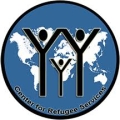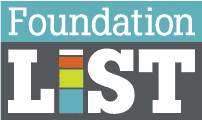Minneapolis–St. Paul Nonprofit Jobs – Explore Careers, Top Employers, and Industry Insights
The Twin Cities metro is one of the strongest nonprofit hubs in the Midwest, with thousands of organizations spanning healthcare, human services, education, arts and culture, environmental stewardship, and philanthropy. The region’s civic tradition, Fortune 500 corporate foundations, and nationally recognized health and university systems generate steady hiring across entry-level through executive leadership. From world-class arts institutions to neighborhood-based service agencies, Minneapolis–St. Paul offers meaningful roles for professionals who want purpose, career growth, and a high quality of life.
Best neighborhoods to live in for nonprofit professionals: In Minneapolis, consider Downtown & North Loop for access to civic and arts organizations; Uptown & Lyn-Lake for youth, housing, and community nonprofits; and Northeast for arts and culture. In St. Paul, Lowertown & Downtown connect to museums and service agencies; Summit–University & Macalester–Groveland suit higher-ed and philanthropy roles. Suburban hubs like Bloomington, Roseville, Edina, and Maplewood provide quick commutes to regional health systems and education employers.

Minneapolis nonprofit jobs |
St. Paul nonprofit jobs
Finding Nonprofit Jobs in the Twin Cities: Market Overview & How to Search
Twin Cities nonprofit hiring is especially strong in healthcare, behavioral health, housing & food security, education & youth, arts & culture, environment, and philanthropy. To accelerate your search, combine targeted job boards, alerts, and networking with anchor institutions and local associations.
How to Search Effectively
- Use targeted filters on Foundation List for “Minneapolis, MN” and “Saint Paul, MN,” then enable email alerts for new roles.
- Prioritize anchors: major health systems, universities, United Way chapters, community foundations, and cultural institutions post frequently.
- Volunteer intentionally at high-visibility agencies to build references and transition to paid roles.
- Tailor your materials to highlight outcomes, DEI experience, bilingual skills, and community partnerships.
Twin Cities Nonprofit Sector Snapshot
- Healthcare & Behavioral Health: Large nonprofit health systems, clinics, and community health centers drive consistent hiring.
- Human Services: Housing, homelessness response, food security, immigrant/refugee support, and workforce development.
- Education & Youth: Universities, independent schools, after-school programs, college access, and early childhood initiatives.
- Arts & Culture: Museums, theaters, orchestras, and community arts organizations across both cities.
- Environment: Land and water stewardship, sustainability, trails/parks, and climate resilience groups.
- Philanthropy: Strong community foundation ecosystem and corporate giving programs supporting regional impact.
Where Nonprofit Jobs Cluster Across the Metro
- Minneapolis – Downtown & North Loop: Civic, arts, workforce, and policy nonprofits.
- Minneapolis – Uptown, Lyn-Lake & Powderhorn: Youth, housing, community development, and health outreach.
- St. Paul – Lowertown & Capitol/Downtown: Museums, statewide associations, and human services agencies.
- University Corridors: University of Minnesota areas and private colleges host research, education, and grant-funded projects.
- Suburban Health/Ed Hubs: Bloomington, Roseville, Edina, Maplewood, and Shoreview for regional program delivery.
The Most In-Demand Nonprofit Roles
- Case managers, social workers, community health workers, and care coordinators
- Development directors, major gifts officers, and grant writers
- Program managers in housing, food security, youth development, and education
- Communications, digital fundraising, and community engagement specialists
- Finance, HR, operations, and compliance professionals
- Data/evaluation, research administration, and IT support
Salary & Career Growth Insights
- Program Coordinators: $40,000–$56,000
- Development Directors: $85,000–$120,000+
- Case Managers & Social Workers: $45,000–$60,000
- Executive Directors (midsize orgs): $105,000–$155,000
- Communications/Digital Fundraising Managers: $62,000–$85,000
Networking & Professional Associations
- Minnesota Council of Nonprofits (MCN)
- AFP Minnesota – Association of Fundraising Professionals
- Greater Twin Cities United Way
- Saint Paul & Minnesota Foundation
Volunteer Pathways into Careers
Many Twin Cities careers begin with volunteering. Food banks, housing organizations, and arts/culture institutions frequently hire proven volunteers into coordinator and specialist roles. For students and career changers, volunteering provides practical experience, local references, and a fast way to demonstrate mission alignment.
Remote & Hybrid Nonprofit Jobs
Hybrid models are common across development, communications, grant writing, IT, finance, and research administration. Direct-service roles remain largely in person, though some case management and care navigation include fieldwork flexibility. Organizations serving statewide or national audiences often maintain remote-friendly teams based in the Twin Cities.
Why Work in Nonprofits in Minneapolis–St. Paul?
The region blends a strong civic fabric, generous philanthropy, and a vibrant cultural life. Professionals benefit from robust networks, training opportunities, and employers that invest in staff development. With mission-driven work across two dynamic cities, the Twin Cities offer both impact and long-term career mobility.
Frequently Asked Questions About Twin Cities Nonprofit Jobs
1) How large is the Twin Cities’ nonprofit sector?
The Minneapolis–St. Paul metro hosts thousands of nonprofits across health, education, human services, arts, and environment. These organizations employ a sizable share of the local workforce and collaborate closely with philanthropy and public partners. Hiring occurs year-round as grants renew and new initiatives launch.
2) How can I find nonprofit jobs quickly in Minneapolis–St. Paul?
Use Foundation List with “Minneapolis, MN” and “Saint Paul, MN,” then switch on email alerts to catch new postings first. Pair that with monitoring anchor employer career pages and LinkedIn updates from local organizations. Targeted networking through MCN and AFP Minnesota helps your resume reach decision-makers sooner.
3) Which neighborhoods are best for nonprofit professionals to live in?
In Minneapolis, Downtown/North Loop, Uptown, Lyn-Lake, and Northeast offer quick access to arts and community agencies. In St. Paul, Lowertown/Downtown and Summit–University/Macalester–Groveland connect well to museums, associations, and higher-ed. Suburban areas like Bloomington, Edina, and Roseville provide shorter commutes to regional employers and family-friendly amenities.
4) Who are the largest nonprofit employers in the metro?
Major nonprofit employers include regional health systems, the University of Minnesota and private colleges, large human-services agencies, and community foundations. Cultural institutions and major United Way programs also employ significant staff across functions. These anchors regularly post roles in healthcare, programs, development, communications, and operations.
5) What roles are most in demand right now?
Behavioral health and care navigation roles remain consistently needed, along with housing and food-security program staff. Fundraising professionals—especially major gifts, grants, and digital fundraising—see steady demand. Communications, data/evaluation, and operations specialists also appear frequently in postings.
6) Do Twin Cities nonprofits offer remote or hybrid work?
Yes—hybrid options are common for administrative, fundraising, finance, IT, and evaluation roles. Some statewide or national nonprofits based here are remote-first or remote-friendly. Direct-service positions typically remain in person, with selective flexibility depending on program design.
7) What salaries can nonprofit professionals expect locally?
Compensation varies by function and organization size. Coordinators often range $40k–$56k, development directors $85k–$120k+, and midsize executive directors $105k–$155k. Benefits such as healthcare, retirement, and professional development support are widely offered and can meaningfully enhance total compensation.
8) How do I start an entry-level nonprofit career in the Twin Cities?
Begin by volunteering with a well-known organization to gain references and practical skills. Add certificates in grant writing, project management, HR, or data to stand out for coordinator roles. Attend MCN and AFP Minnesota events to build relationships that lead to interviews.
9) Are nonprofits hiring in the Twin Cities right now?
Yes—demand remains steady across healthcare, housing, development, and education. Many organizations recruit continuously as programs grow and funding cycles renew. Keeping alerts active and networking consistently helps you move fast on new openings.
10) What local resources help nonprofit job seekers?
Foundation List is ideal for targeted searches and alerts. The Minnesota Council of Nonprofits provides training, sector news, and connections, while AFP Minnesota supports development professionals. Local community foundations and United Way programs also surface opportunities and community needs.
Featured National & Twin Cities Nonprofit Jobs

























See All Minneapolis Jobs | See All St. Paul Jobs
Post Minneapolis–St. Paul Nonprofit Jobs
Are you an employer hiring in the Twin Cities? Reach mission-driven professionals by posting your jobs on Foundation List. Our national job board is trusted by nonprofit organizations, foundations, schools, associations, and healthcare institutions to connect with passionate candidates.
Post Twin Cities Nonprofit Jobs
Foundation List is a national nonprofit job board connecting nonprofits, foundations, associations, healthcare, and educational institutions with mission-driven talent.

